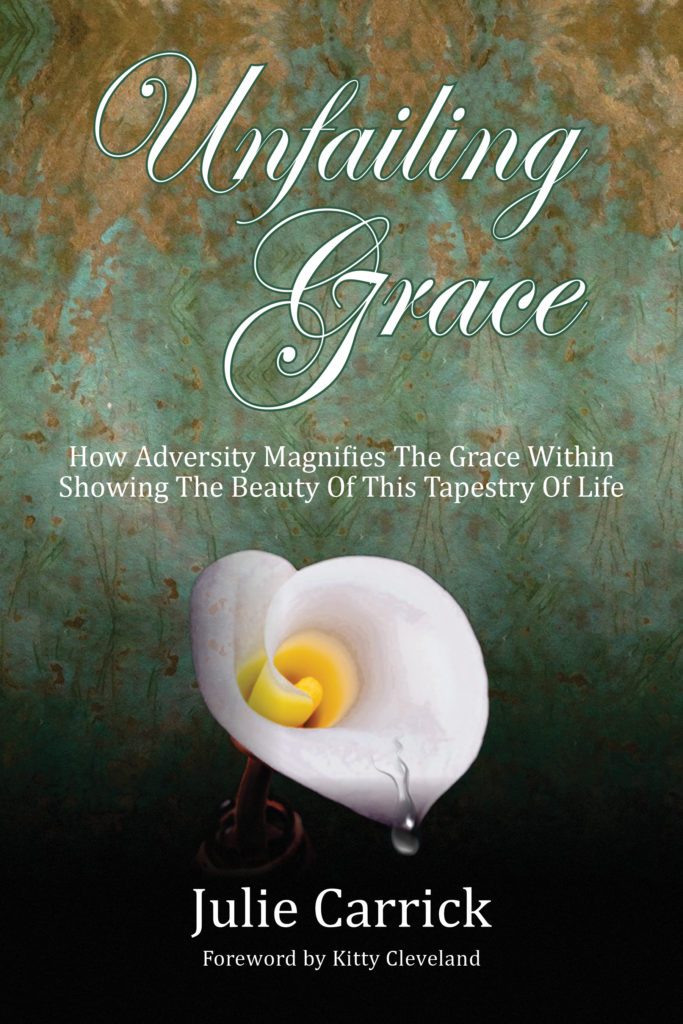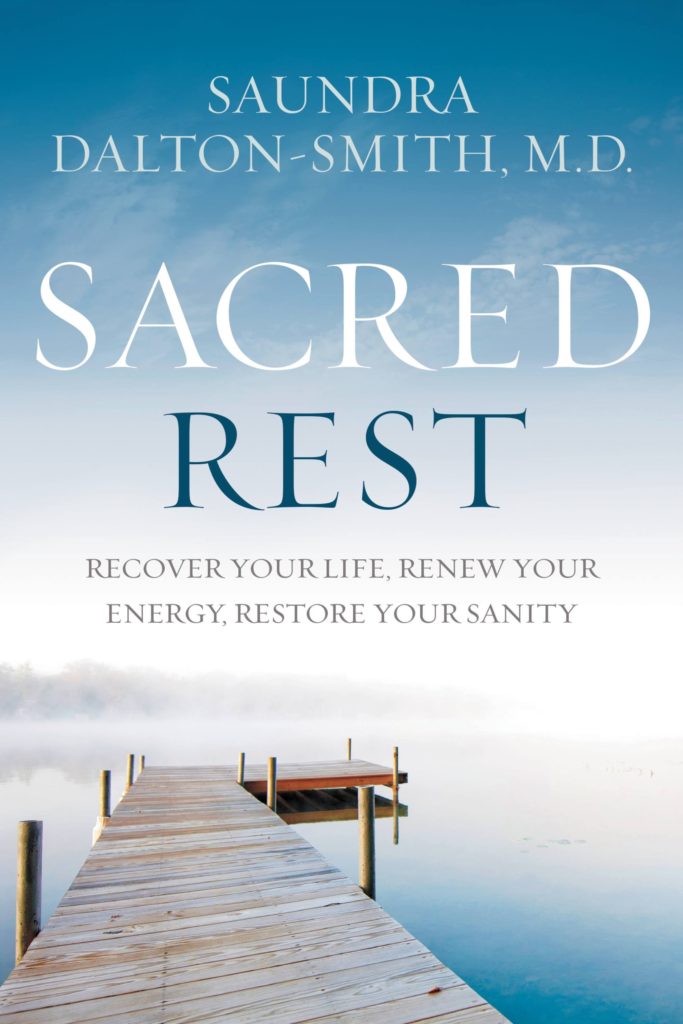Unfailing Grace and Sacred Rest: Julie Carrick and Dr. Saundra Dalton-Smith
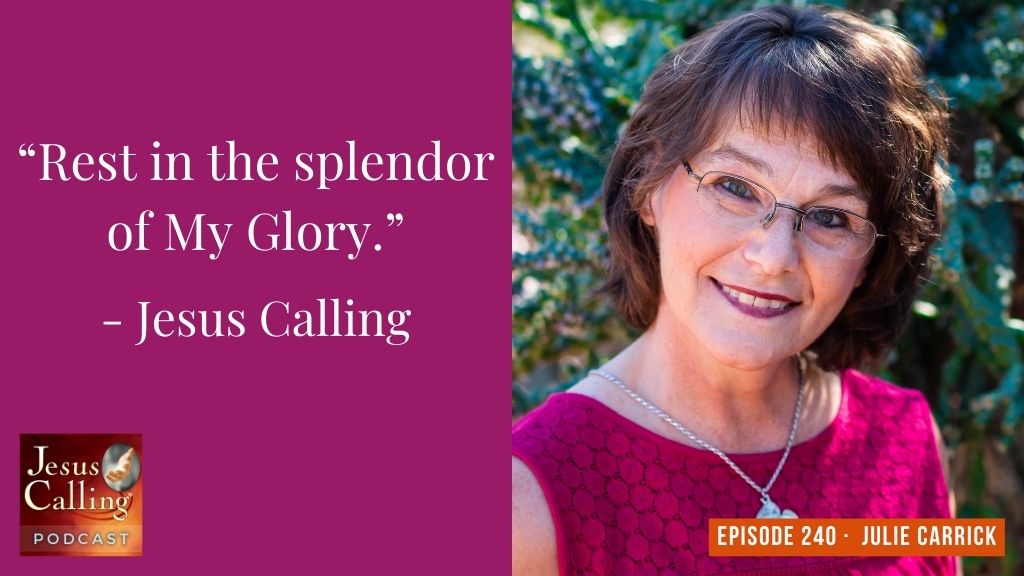
Julie Carrick: I had to just find myself in the presence of God to be able to say, “You know, Lord, I’m trying so hard to be the person you want me to be.” And I felt unworthy of God’s love for a number of reasons. And I remember kneeling there and just having this conversation with Him and saying, “I feel so unworthy, I feel so broken. I don’t understand why you would let life be so difficult for me.” And instead of Him berating me or whatever, I just felt this overwhelming love that said, “You are loved. You are a recipient of my mercy.”
Unfailing Grace and Sacred Rest: Julie Carrick and Dr. Saundra Dalton-Smith – Episode #240
Narrator: Welcome to the Jesus Calling Podcast. In a culture that rewards hard work, long hours, and stretching ourselves too thin, we might find ourselves leaving less and less time to accept mercy and find real rest—the kind that only comes from being in God’s presence. This week, we have two women who attest to the power of allowing God to speak into our busy days, and what it looks like to find mercy & rest by finding closeness with Him: Author and musician Julie Carrick, and physician and author Dr. Saundra Dalton-Smith.
Julie Carrick is a renowned recording artist, speaker, and now author that shares her unyielding faith through her writing and music. As the founder of Catechetical Artistry and co-founder of Carrick Ministries Foundation, She has written and recorded sixteen music projects and has written a book about her life called Unfailing Grace. The theme of God’s grace has been a strong one in Julie’s life, as she experienced the heartbreak of infidelity in her marriage, multiple miscarriages, and a lung cancer diagnosis. Julie believes that being a Christian doesn’t exclude us from having hard things come our way, but believing that God’s grace is extended toward us daily is what gives her the strength to keep going.
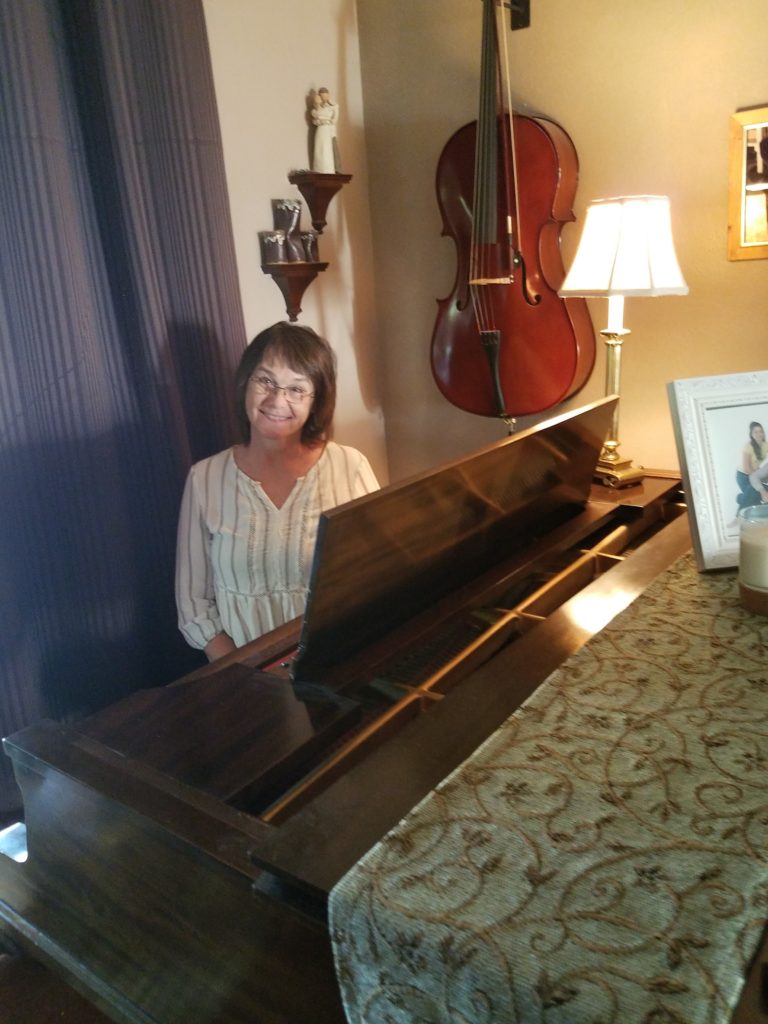
Julie Carrick: I was born and raised in Michigan. I had just a really lovely childhood. I like to look at my upbringing as in rural America, you know, kids on bikes and me on my horse. And it was a lovely time to be born and raised.
I have a big family, seven brothers and sisters, and it was really a faith-filled family. So I’m very blessed. I was raised in the Catholic faith and it was actually a neat thing. My grandfather, although he died when I was very, very little, he was very involved in our church as the organist and choir director. And then my mom followed in his footsteps and I came up in that beautiful faith. And yeah, it was amazing. And my dad was an engineer and a very, very intelligent person. And I loved going into his shop as a kid and up through my teenage years and just watching all of the different things that he would design and then build. And I really had dreams of someday having my own solar energy company.
The Faith of My Grandmothers
You know, there were three people in particular when I was little, two of them my grandmothers, and ironically, I was named for both of them, Julia and Frances, and both of these women gave such a beautiful, really a beautiful way of living their faith that I wanted to emulate.
My grandma Frances, she [led] more of this private prayer life, although I saw her go to church whenever we were together. But I was always impressed with her private prayer. And then my grandma, Julia, was much more extroverted. She was very active, one of the first people as a non clergy person who was helping to teach the faith. And so it was beautiful to see somebody more outward in their expression of their faith. And I thought that was awesome.
And then a wonderful priest by the name of Father Battersby really taught me as a young teenager the accountability of my gift of grace that was given to me by God, you know, this beautiful gift that God gives to every one of us. We can either embrace it and really live in it or we can take it for granted. And he taught me that there was accountability. Yes, it’s free. Yes, it’s a gift. But like with any gift, there’s an accountability of how we use it. And I remember that so distinctly as a young teenager, him having that effect, that I didn’t want to waste the gift that God had given me.
A Life Full of Miracles
It feels like miracles were that constant presence of God in my life. So many miracles. I mean, one of the miracles, our daughter Aitel, when she was only nine years old, was invited to go to Lourdes, France. And in Lourdes, there was a beautiful thing called the Grotto. And it’s a place where you go to pray. And our daughter was miraculously healed of bone cancer. It was just an amazing thing.
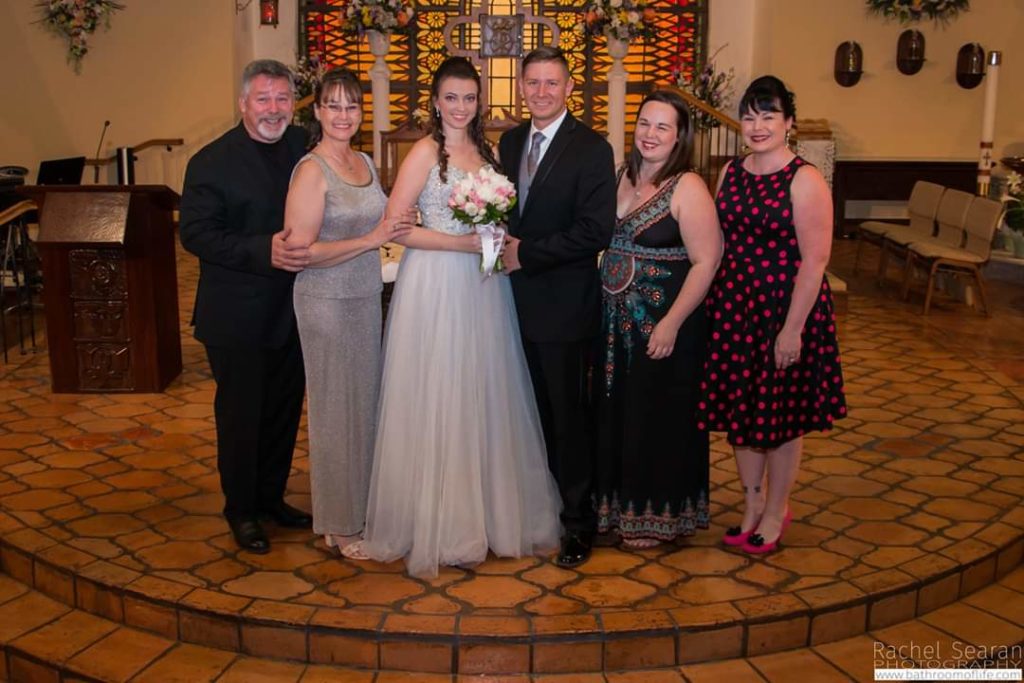
But the miracle that was very personal to me was in 2005. My husband had filed for divorce. And we were at that point of, you know, “How do we go forward and what does life look like?” And I remember it was January the ninth of 2005. And that morning, for whatever reason, I had hit my limit of pain. And I told my husband that morning, I said, “You know, in the eyes of God, we will always be married. A divorce isn’t going to end what God has joined together. A civil divorce isn’t going to end that. But I’m not going to live like this anymore. So you need to leave.” And as he got up to walk from our room down to the hallway where we have our closet with luggage, he heard a voice. And the voice just merely said, “Curt, where are you going? Look around you, this is your home, this is your life, where are you going?” And he said in that moment, just hearing that beautiful, pure voice made him realize the choices that he had made in that point in his life with being involved with another woman, with planning on leaving our family, and going and starting this new life–—it was just laid bare and he could just see that it was not taking him to God or to anything godly, but it was taking him to a deep place of darkness that he would not come back from.
And it was an instantaneous 180 degree turn around. And of course, I didn’t know that he had just heard this voice. So when he came back and he said, “I choose you, I choose our marriage, and I’m stopping the divorce proceeding, I don’t want to go through with it. I want us to be a family,” I was just overwhelmed. And again, that grace was so necessary in order to not only forgive him, but to forgive myself for my part in it, to forgive the circumstances that were happening in our life. Just that incredible grace, God’s unfailing grace. No matter what we go through, that grace is there.
“God’s unfailing grace. No matter what we go through, that grace is there.” – Julie Carrick
Telling My Story of Grace
I had been sharing bits of my life in different gatherings that I was teaching out or singing at. And I realized I couldn’t just give the surface. I had to give the full story. And so that’s what was resonating inside of me, was to share the whole story, not just the bits and pieces.
So the title of the book is Unfailing Grace: How Adversity Magnifies the Grace Within Showing the Beauty of This Tapestry of Life. And it’s a very candid look at my life from from the greatest joys to the to the most difficult sorrows and how it was God’s grace that allowed me to not only go through this life, but to thrive in the process and to to go past some things that honestly, if it weren’t for his grace, I honestly would not be here today.
Finding Hope in Scripture and in Jesus Calling
You know, the scripture—although it was written thousands of years ago—it wasn’t written just for a thousand years ago. It was written timelessly. There is no beginning. There’s no end. It was written for us today as much as it was back in the day. And so, in fact, one of the scripture passages when my husband and I were in our darkest moment, I remember just letting scripture fall open and we would read these passages.
“The scripture—although it was written thousands of years ago—it wasn’t written just for a thousand years ago. It was written timelessly. There is no beginning. There’s no end. It was written for us today as much as it was back in the day.” – Julie Carrick
And the funny one, there was this moment when I let the Bible just fall open, where they were talking about how a husband will love his wife, and it’s this permanent love. But God speaks to us in that way. And so to have a devotional like Jesus Calling, I think it’s amazing to open it and let those words speak how God wants us to hear them.
So this is the passage from Jesus Always, April 23rd.
MY UNFAILING LOVE IS BETTER than life itself! There is no limit to My Love—in quality, quantity, or duration. It is infinitely better than anything this world offers, and it will never run out. How priceless is My unfailing Love! Consider the parable of the merchant looking for fine pearls. When he found one of great value, he sold everything he had and bought it. My Love is like that pearl: so valuable that it is worth losing everything else to secure it forever. Though gaining My Love is worth losing your life, it actually enriches your life. This glorious gift provides a foundation for you to build on, and it improves your relationships with other people. Knowing that you are perfectly and eternally loved helps you grow into the one I designed you to be. Grasping how wide and long and high and deep is My Love for you leads you into worship. This is where your intimacy with Me grows by leaps and bounds—as you joyously celebrate My magnificent Presence!
And I have to tell you, this absolutely resonates in my heart, especially with our conversation not just today, but the beauty of God’s desire for us to be with Him. And I think of that phrase, the last three words of it, My magnificent Presence. Nothing else matters. Just being in His presence, acknowledging His perfect love for us.
Narrator: To learn more about Julie’s book, Unfailing Grace, visit JulieCarrick.com.
Stay tuned to some thoughts around finding sacred rest with Dr. Saundra Dalton-Smith, after a brief message.
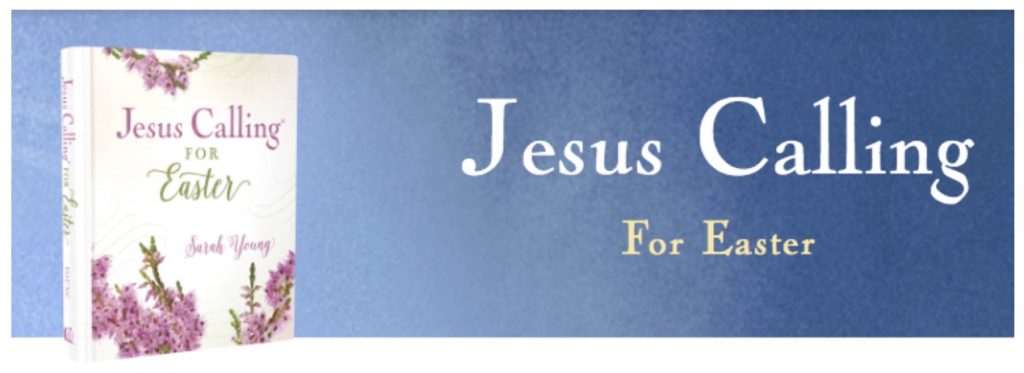
Narrator: The Easter season is filled with joy and hope. Now, there’s a new way to focus on the holiday with the new book, Jesus Calling® for Easter. With 50 Jesus Calling devotions selected just for the Lent and Easter season, Jesus Calling for Easter includes Scripture verses alongside breathtaking imagery and exquisite design. Jesus Calling for Easter makes a stunning gift for those who love Jesus Calling and would like a new way to observe the Easter season. To learn more about this beautiful new edition of Jesus Calling, please visit jesuscalling.com/books.
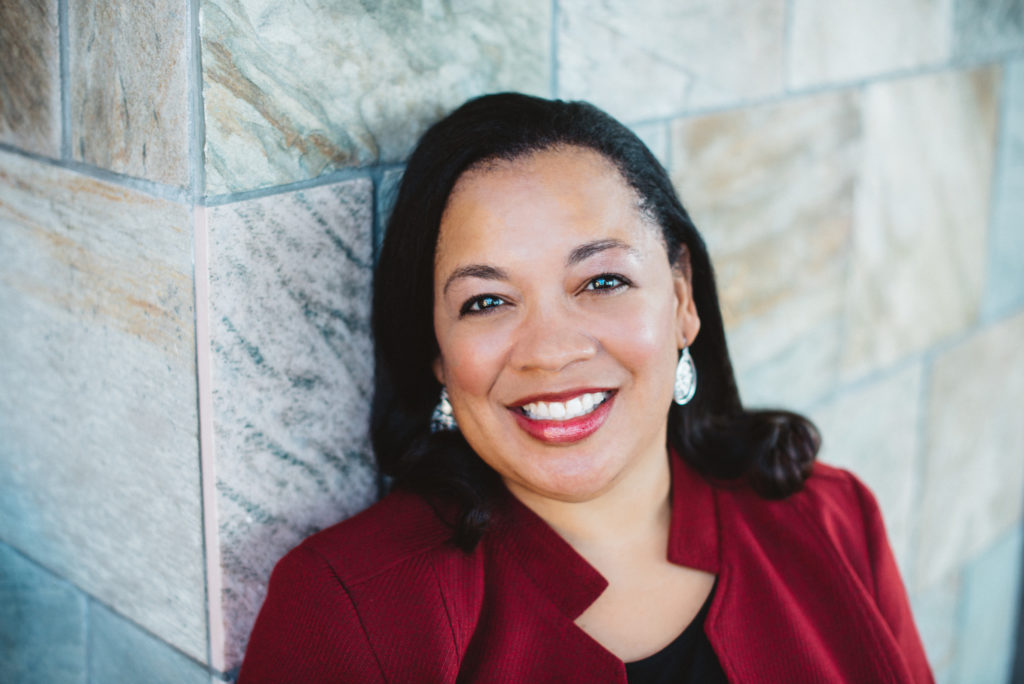
Narrator: Dr. Saundra Dalton-Smith is an author, speaker, and board-certified internal medicine physician. Dr. Dalton-Smith has consulted nationally and internationally around topics related to the connection of the mind, body and spirit, and is a top 100 medical expert in Good Housekeeping Doctors’ Secrets. She’s written a book on the topic of rest called Sacred Rest: Recover Your Life, Renew Your Energy, Restore Your Sanity. She shares some of the principles of why we all need to seek sacred rest to live a fuller life, and to have capacity for what God is pouring into our lives.
Dr. Saundra Dalton-Smith: I’m Dr. Sandra Dalton-Smith. I’m the author of the book Sacred Rest: Recover Your Life, Renew Your Energy, Restore Your Sanity, a board-certified internal medicine physician, as well as a work life integration researcher.
I’ve spent the past few years really diving deep into how do we rest better? How do we get to a place where we’re able to live our busy lives and do all the things that we do with our responsibilities, with family and with our career, and do them effectively without getting burned out, without getting to a place that it loses its joy and its purpose and we feel as if we are being pulled in all directions?
“We’re in a position where we are working out of our exhaustion rather than working out of the fullness of all that we have to give. We’re not fully being able to use our gifts and our talents and all that God’s placed inside of us because we are always working out of that place of depletion.” – Dr. Saundra Dalton-Smith
Rest is not something we can just get to like that book on our shelf whenever we have time, when we feel like we need it. Because the problem is most of us are staying chronically fatigued, chronically tired, and we’re in a position where we are working out of our exhaustion rather than working out of the fullness of all that we have to give. We’re not fully being able to use our gifts and our talents and all that God’s placed inside of us because we are always working out of that place of depletion. And that’s what sacred rest is, it’s taking that time to recognize that rest is needed, is necessary. If we want to be able to give our best selves to whatever area that we are serving, whether that’s our family, whether that’s a ministry, or if that’s within our careers―to give of our best, we have to be able to take the time to intentionally rest well.
“To give of our best, we have to be able to take the time to intentionally rest well.” – Dr. Saundra Dalton-Smith
Seven Types of Rest
My research has shown that there are seven different types of rest, and those seven types are physical, mental, spiritual, emotional, sensory, social, and creative.
1. Physical Rest
When you go to bed at night, if you’re exhausted and you wake up the next day and you’re still exhausted, chances are it wasn’t a physical rest deficit that was the problem. You likely have a rest deficit in one of these other types of rest that I mentioned. And so even with physical rest, it has two components. The passive, which are things like sleeping and napping. And then it has the active components, which are things like stretching or making sure that you’re doing things that improve your circulation and your lymphatic drain, like a laser for being able to make sure that your body doesn’t stay in a stationary period for long periods of time. So if you can see, you have to change your mindset on what the word rest means. It is not simply the cessation of activity. It is not stopping. It is not simply sleeping. There are those things that you do to restore each of these seven types of rest.
2. Mental Rest
The next one would be mental rest. Mental rest looks like clearing after headspace, allowing yourself to not always be ruminating over thoughts. If you’ve ever had that experience where you lay down at night and while you’re in bed, just like your head just will not shut up. It’s going through all of the things that you’ve done that day and checking off your to do list for the next day. But it won’t get to that quiet space. That’s what mental rest looks like. Learning how to quiet your mind so that you’re not always full of all of these thoughts.
I always like to meditate on a characteristic of God or even a word that brings you back to think about who God is in your life. Peace, love, joy. Pick a word, a phrase that you will focus on as a way of calming your mind and keeping it from being able to just jump to whatever thought that it decides it wants to.
“I always like to meditate on a characteristic of God or even a word that brings you back to think about who God is in your life. Peace, love, joy. Pick a word, a phrase that you will focus on as a way of calming your mind and keeping it from being able to just jump to whatever thought that it decides it wants to.” – Dr. Saundra Dalton-Smith
3. Emotional Rest
The next type of rest would be emotional rest. Now emotional rest deals with allowing yourself to be able to be very open and honest and truthful about what’s going on with you. So if you’re someone who has a tendency to keep your thoughts to yourself, you don’t enjoy being very authentic or very forthcoming about how you’re emotionally feeling and what’s going on with you in your life, this may be a place where you have a bit of a rest deficit. Because the problem with emotional rest is if you’re never allowing anyone to see what’s going on with you, it starts making you feel that at the very core there is something that has something wrong with your beliefs, and it doesn’t make you feel as if you’re able to truthfully share yourself, all of yourself, with others.
I believe every one of us needs to have those people in our lives, whether it’s a counselor or a therapist or a trusted friend, a family member, someone who knows at the very core of what’s going on with you.
“I believe every one of us needs to have those people in our lives, whether it’s a counselor or a therapist or a trusted friend, a family member, someone who knows at the very core of what’s going on with you.” – Dr. Saundra Dalton-Smith
4. Social Rest
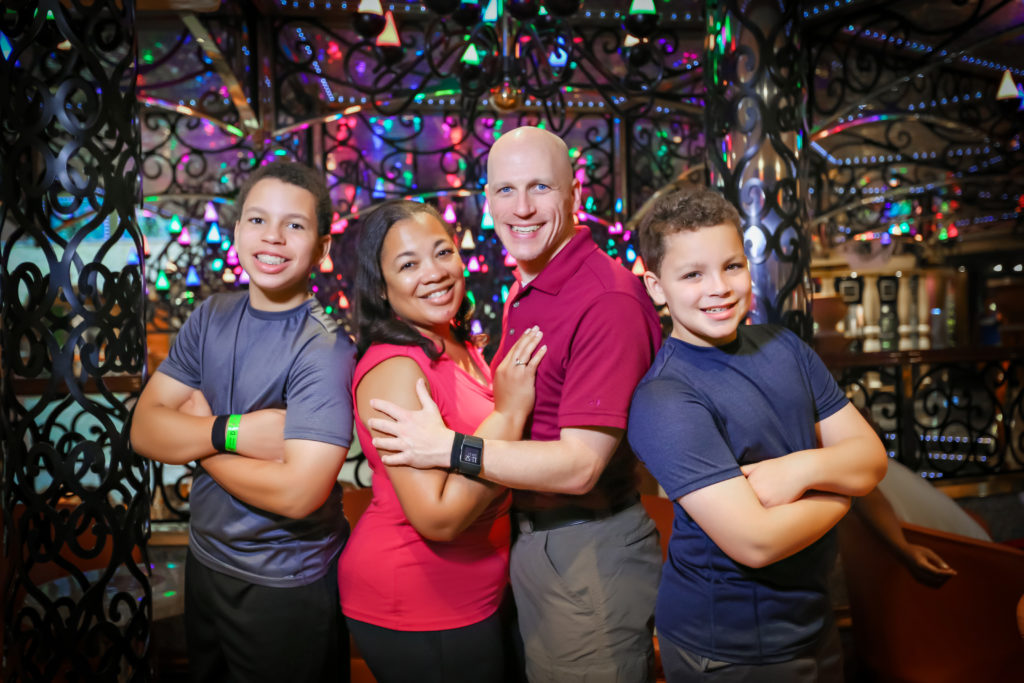
Next, the social rest. Social rest is the rest that allows us to experience the energy of being around other people. When we’re young or high school, we’re growing up in college with a lot of friends that we hang out with—people who don’t necessarily need anything from us, but who we enjoy being around, those life-givers. Then as we get older, our responsibilities seem to come in and it pulls us away from those adult friends. And we tend to spend all of our time with people who are requiring things from us. Now, those people who are negatively pulling from your social energy does not mean they’re negative people. These could be your kids, your spouse, your coworkers, your colleagues, your clients. Anyone that you’re working with may be requiring that social energy from you and they’re not negative people, it’s just how are they pulling on your life?
And so we all need those people in our lives that don’t require anything from us, that we just enjoy being around. And we need to see the value in spending time with those people who can pour back into us. We can’t always be the ones pouring out into others.
“We need to see the value in spending time with those people who can pour back into us. We can’t always be the ones pouring out into others.” – Dr. Saundra Dalton-Smith
5. Creative Rest
The next type of rest is creative rest. This is one of my favorites because I think many of us have experienced creative rest without really even thinking about what it is or how it works. Creative rest is the rest we experience when we allow ourselves to appreciate the beauty in whatever form, whether it’s natural beauty like the beach or the mountains or the forest or flowers, or if it’s man-made beauty, like going to the art museum or listening to music. For many people, these are ways to restore that creative energy and those creative juices inside of us and to awaken that and to allow us to get back to a place where we are feeling inspired and motivated and that creativity comes alive.
6. Sensory Rest
The next type of rest is sensory rest. Now, with everything that’s gone on over the past months, we’re using our electronics and our gadgets more than ever, and it’s caused a lot of us to experience sensory overload. We need to have some time away from it. We need time in silence. We need time that we just spent away from the notifications where we’re turning off some of these things that are keeping us feeling overwhelmed and drained and allow us to get back to a place where it’s okay to turn the TV off, to just sit in silence with God sometimes and just be present in the moment.
7. Spiritual Rest
And then that brings me to the final type of rest, which is spiritual rest. Spiritual rest is really not about religion. It’s all about relationships. Spiritual rest is the rest we experience when we have intimacy with God, when we take time to break away just to be with Him where we’re not coming with our agenda. We’re not coming with our prayer list. We’re coming simply to just spend time in His presence and to enjoy being with Him.
“Spiritual rest is the rest we experience when we have intimacy with God, when we take time to break away just to be with Him where we’re not coming with our agenda. We’re not coming with our prayer list. We’re coming simply to just spend time in His presence and to enjoy being with Him.” – Dr. Saundra Dalton-Smith
It is a requirement that we each take time to rest. Not only is it important for yourself, but it’s also important and what you’re modeling if you have children. There is a large number of people coming up after us who are coming into a culture that teaches them that rest is not important. And we have built up a burnout generation that thinks it’s okay to have their notifications on every time they get a text message. They think it’s okay to be tired every day, but that’s as good as it gets. The best you can hope for is to live a life of complete exhaustion day in and day out, working a job that you have no passion for, that you have no desire for, that you do not feel inspired or call to feeling as if that is the norm. And I do not believe that’s God’s best for our life. I do not believe that is the abundant life that He talks about in John 10:10.
I believe that abundant life is the life that is overflowing, that moves from a place of rest out into the workforce, out into the things that you are called to do. God’s best for us is where we actually go back to the very beginning and we do it as He has modeled even from the very beginning of creation. We see that on day six, man was created and then God broke into them, commissioned them, told them who their identity was, what they were to do. They were going to have dominion and subdue. And we see the pattern set in place where man was beginning and [getting] that call into the workforce. And then we see the very next thing that happens is that they’re placed into a day of rest. On the seventh day, God rested, while man was resting, too, because there was no mention of the work actually beginning until after that seventh day. Many of us have it completely backwards. We live in a culture that says, “Work, work, work. And then after you finish the work, then you can rest.” The work’s never done. There will always be work. The Bible shows a very different way of working and resting. Spend time in God’s presence, that is. Let Him speak into your identity, call to commission you to the work that you are to do.
“God’s best for us is where we actually go back to the very beginning and we do it as He has modeled even from the very beginning of creation.” – Dr. Saundra Dalton-Smith
I’d like to conclude with an excerpt from Jesus Calling, May 12th.
Many of My precious children have fallen prey to burnout. A better description of their condition might be “drainout.” Countless interactions with needy people have drained them, without their conscious awareness. You are among these weary ones, who are like wounded soldiers needing R&R. Take time to rest in the Love-Light of My Presence. I will gradually restore to you the energy that you have lost over the years.
Be blessed.
Narrator: To learn more about the work of Dr. Saundra Dalton-Smith, please visit http://www.drdaltonsmith.com/. You can find Saundra’s book, Sacred Rest: Recover Your Life, Renew Your Energy, Restore Your Sanity, anywhere books are sold.
If you’d like to hear more stories about God’s mercy, check out our interview with Jana Kramer & Mike Caussin.
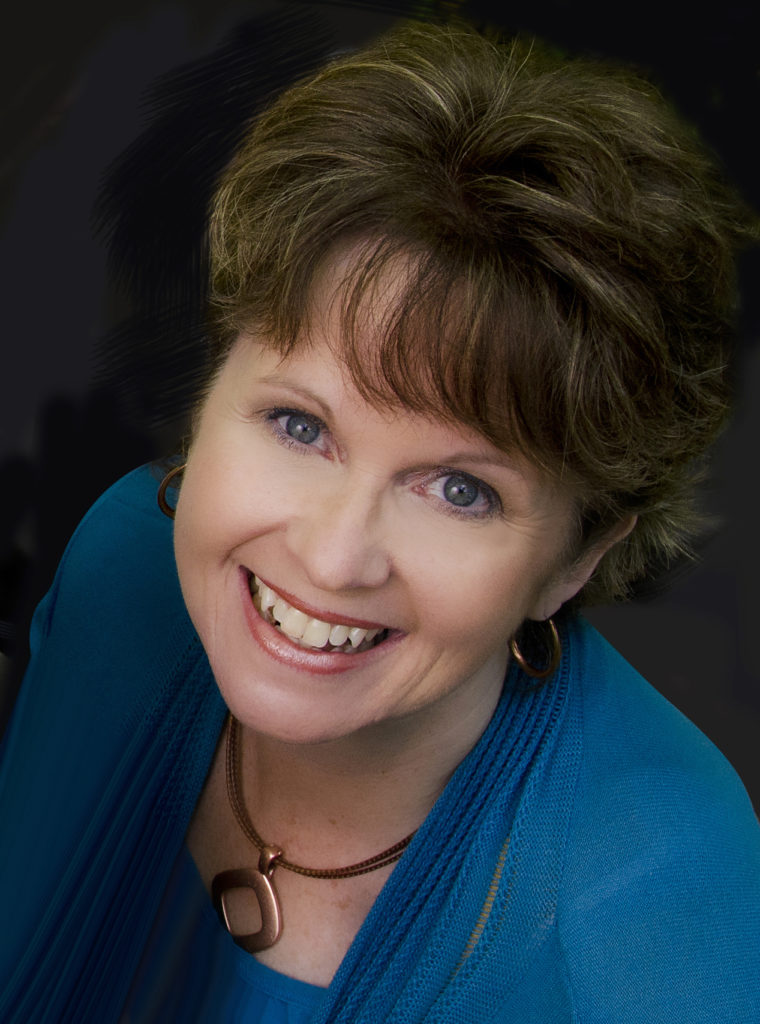
Narrator: Next time on the Jesus Calling Podcast, we speak with author and speaker Karen Ehman from Proverbs 31 Ministries. Karen talks about prioritizing our most important relationships—including our relationship with God—above everything else.
Karen Ehman: Our relationship with God and our relationship with others, that’s what matters most and that’s what we should be spending our time on. But so often we’re pulled away to other pursuits. But those things should be secondary to really focusing our time on our relationship with God and our relationship with others, and especially trying to let other people see the gospel in us, both in how we live our lives and the words that we say.
